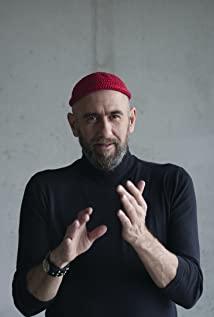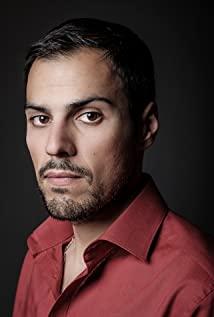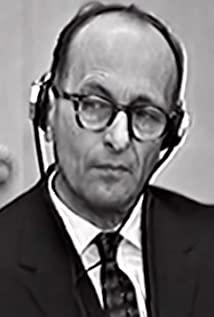It should be said that the filming of the whole film is relatively boring, and there are some problems with the translation of subtitles. If you lack knowledge about Hannah Arendt and the Eichmann trial beforehand, it will be more difficult to watch the movie. The reaction of the audience also illustrates this point. Most of the audience felt a little sleepy most of the time. It was only at the end that Arendt’s passionate speech in the classroom aroused some of the audience’s emotions and even accompanied it. Along with the applause in the class, some audience members also clapped.
Objectively speaking, this film still more accurately restores Arendt's life at that time. As a German film, it has not only the hard and dull German film, but also the clarity and coldness of German film. The film focuses on the confrontation of ideas, but not enough attention to fun. For Hannah Arendt, the film only focuses on a short period in her life, that is, Israel's trial of Nazi Eichmann. She published an article to defend Eichmann, which caused an uproar. The film only reviewed his life's thoughts and behaviors through a few flashbacks. The director does not pay attention to Arendt's personal life, and even her relationship with her teacher Heidegger just flashes in front of the camera. Instead, it took considerable pen and ink to highlight Hannah Arendt's character of thinking and uncompromising.
Eichmann was a notorious Nazi criminal who was responsible for the final plan for the massacre of Jews and was called the "death executor". Many Jews hated him so much. During the Jerusalem trial, to prevent being killed, he was equipped with bulletproof glass in front of him, which is what Arendt called a glass box. In fact, for the entire Nazi Germany, Eichmann is definitely just a small person. During the trial, he did not admit the crimes he had committed. He believed that all his actions were just executing orders. He sincerely believed in Nazi ideas and firmly believed that everything the leader did was correct. Therefore, when the order is executed, it is executed without hesitation and without hesitation. In his mind, the Jews are not regarded as human beings, but only the raw material that the killing machine needs to devour. When he was performing his task, he was no longer a normal person, he lost the ability to think, lost the emotion of a normal person, but alienated into a machine.
Hannah Arendt defended him on this basis. Of course, what Eichmann committed was a heinous crime. After all, six million Jews died more or less because of him, even if they died directly under him. But Arendt does not think he should bear the responsibility of being accused, and it is not fair to bring him to court for trial. This is not in line with the principle of justice that is most important to the courts. Eichmann's killing was not because he had a direct interest in the people he killed, nor was he hating the people he killed. He had never lived with the Jews who were killed. He killed them because he wanted to execute orders. He believed the heads of state and felt that killing these Jews would benefit the Nazi cause and the survival and development of Germany.
When executing the order, he would not think about whether what he did was justice, let alone whether there was a problem with the order of the head of state, and because he did not think about it, he did not have the inherent good and evil judgments in the hearts of normal people. Eichmann was just a killing machine. He killed Jews mechanically and ruthlessly in accordance with the instructions of the system or system. As long as this system is not changed, whoever is placed in that position will execute the order to kill, only to a different degree. Therefore, the sin committed by Eichmann was not a personal sin, but a sin of the system, a sin brought about by the evil thoughts or doctrines of the Nazis.
As a result, Arendt put forward her famous view that the crime Eichmann committed was not an extreme evil, but a mediocre evil, an evil that every little person could commit under the evil system. . Eichmann is not a treacherous person, judging from his performance in court, he is also a polite person. He is not stupid either, he likes Kant's philosophy, and claims to use Kant's philosophy as his code of conduct. He is a husband and father, and abides by his responsibilities. In the eyes of his family, he may be a perfect son, husband or father. If he were put in a normal society, he would be a good, law-abiding citizen, and perhaps the backbone of society. Unfortunately, he was born in troubled times and under an extremely evil system. Instead of becoming a good citizen, he became the murderous Eichmann. And this is the epitome of the entire Germans at that time, every German may become Eichmann.
Why does a small person like Eichmann have the evil of mediocrity? Hannah Arendt pointed out that this was because they completely gave up the right to think and replaced their own thinking with institutional thinking. They completely regard themselves as a screw in the system they subscribe to. The purpose of their existence is to keep pace with the system, that is to make the system work perfectly, and never think about whether there is a problem with the system itself, and how to think about it. rationality. In the movie, Hannah Arendt repeats what her teacher Heidegger said, thinking does not bring us knowledge, but only allows us to judge good and evil and beauty and ugliness. Finally, she proposed that thinking can bring power. That kind of catastrophe occurred in Germany precisely because all Germans did not think about it at that time. If Eichmann is only held accountable for himself, instead of the crime of the system, and understanding of this banal evil, then the tragedy of the Jews will be repeated in the world.
In fact, this kind of reenactment has been going on all the time. From Nazi Germany to the Red Soviet Union, this is what Hannah Arendt has experienced or heard. Of course, there are some more mediocre evils that are still flooding many places, including this land under our feet. Here, until today in the 21st century, we still refuse to think, and there is still only one kind of thought, one kind of institutional thought, occupying each of us. We naturally believe that everything that exists is reasonable and taken for granted, and consciously acts as a screw on this machine to maintain the operation of this system. Didn’t we also commit the evil of mediocrity like Eichmann? Although we did not kill people as calmly and madly as Eichmann, we will still be like him, unswervingly performing any tasks assigned to us by the system. We did not kill. It is not that we hate killing, but that we have not been pushed to such a position by history.
The Nazis defined Jews as non-human beings, so Eichmann would execute the order without thinking to destroy the nation physically. Some systems despise the universal cognition of mankind, hate the existing human cultural creation and ideological achievements, and pursue the so-called universal theory. The whole people is not like the Germans in the 1930s and 1940s. Garth thought and went crazy to destroy everything. Compared with Nazi Germany, the Cultural Revolution caused more serious consequences.
Of course, the mediocre evil proposed by Hannah Arendt is not to exonerate people like Eichmann. Everyone in history must be responsible for their actions and must bear their own responsibilities. There is a story that has been circulating for a long time. Regardless of whether it is true or not, you can understand from it the question of how personal responsibility is defined under the evil system. After the fall of the Berlin Wall, a German court tried the soldiers who shot and killed the cross-border soldiers. These East German border guards claimed that they were performing their duties. The judge asked them, can't you raise the muzzle by an inch? If the border guard raises his gun, it shows that he has independent and in-depth thinking, and refuses to use himself as a part of the institutional machinery, which leads to the revival of human nature and his own judgment of good and evil. And if you give up thinking and let the thought of the system replace your own thinking, you will inevitably lose your conscience, which will inevitably lead to the evil of mediocrity, and the many evils of mediocrity will inevitably lead to the occurrence of disasters in the entire society.
Arendt did not stop there. In her article "Eichmann in Jerusalem", she not only pointed out the responsibilities of the perpetrators in the Holocaust, but also talked about the responsibilities of the victims. This was what caused an uproar at the time and aroused the anger of the entire Jewish society. major factor. She believes that the slaughter of six million Jews occurred because of the cooperation between the leaders of the Jewish community and the Nazis. At the same time, the entire Jewish society remained silent about this appalling massacre, and did not have the courage to resist, and should also shoulder certain responsibilities for the massacre. Tolerance of evil and non-resistance to inhumanity is actually a kind of mediocre evil. The proliferation of such banal evils will make extreme evils worse and worse, leading to disastrous consequences.
This is of course unacceptable to the Jews who are in pain. They think it is to sprinkle salt on the wounds of the relatives of the victims. Under the circumstances, it was true. From this we can also see Hannah's uncompromising attitude. She herself was a Jew, and as she herself claimed, she did not consider herself a Jew, even though she almost entered a Nazi concentration camp at the time. However, we think hard, and Hannah Arendt’s words are not without reason. The fear of a brutal system can only contribute to the spread of such brutality. The cases from the Holocaust to today all illustrate this point. Heaven helps those who help themselves, we still need courage to face the extreme evils of the system.
Where does courage come from? Hannah Arendt said that thinking can bring power. Of course, thinking also brings courage. In-depth and independent thinking will inevitably make us believe in justice, in the universal value of mankind, and in the belief that human conscience will eventually defeat evil, and we will naturally have the courage to resist. Only the nation that gives up thinking is the saddest.
View more about Hannah Arendt reviews











